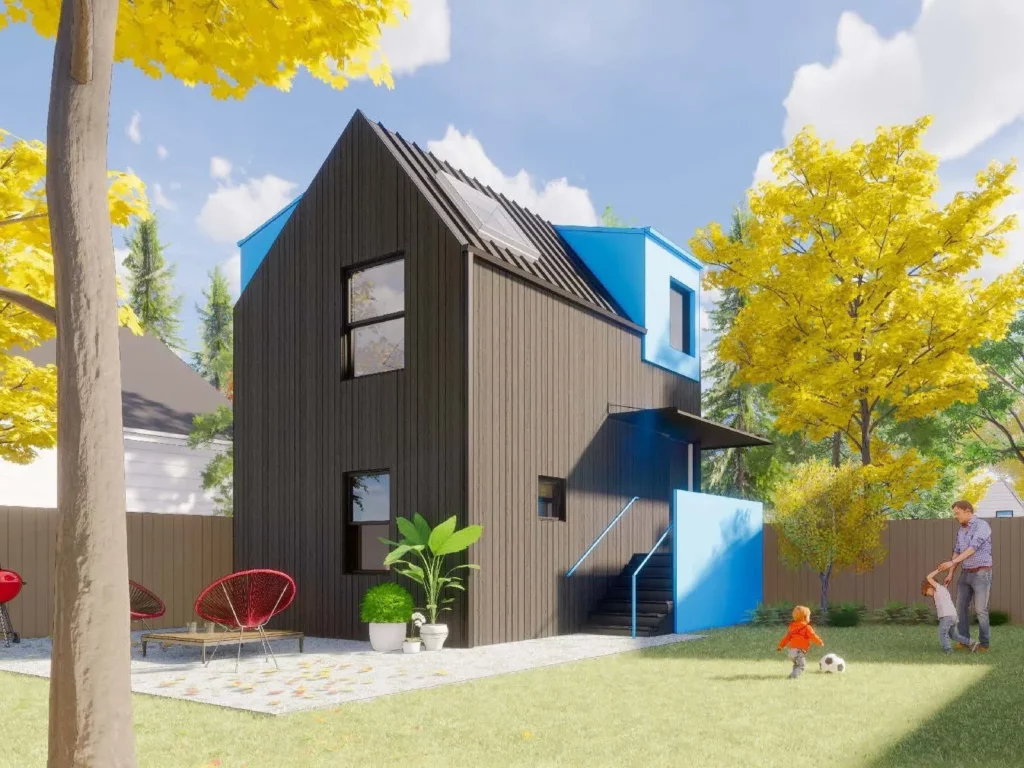Your Guide to Washington’s New ADU Laws and How They Impact Homeowners in Seattle and Beyond
If you’re a homeowner in Seattle or King County, 2025 is a landmark year for accessory dwelling units (ADUs) and detached accessory dwelling units (DADUs). Thanks to House Bill 1337 (HB 1337), building an ADU or DADU is about to get easier, more affordable, and more rewarding. This new law, which takes full effect on July 1, 2025, removes many of the barriers that have made ADU construction complicated and expensive.
In this guide, we’ll break down HB 1337 and explain how it impacts ADU and DADU construction in Seattle, Bellevue, and other parts of King County. Whether you’re planning a backyard cottage, a basement apartment, or a garage conversion, this law opens up exciting new opportunities for homeowners.
What Is HB 1337?
HB 1337 is a Washington State law designed to address the housing affordability crisis by making it easier to build ADUs and DADUs. These small, secondary homes—whether attached to your primary residence or built as standalone units—are a key part of the solution to the state’s housing shortage.
The law requires cities and counties to update their zoning and development regulations to comply with new statewide standards by June 30, 2025. This means that, starting July 1, 2025, homeowners across King County will benefit from streamlined permitting, fewer restrictions, and more flexibility when building ADUs and DADUs.
Key Changes Under HB 1337
1. No More Owner-Occupancy Requirements
Starting July 1, 2025, HB 1337 eliminates the requirement that homeowners must live on-site to build or rent out an ADU or DADU.
What this means for you:
- You can rent out both your primary home and your ADU/DADU independently.
- No more annual affidavits proving you live on the property.
- Exception: Properties in environmentally sensitive areas may still have restrictions.
2. Two ADUs Allowed Per Lot
HB 1337 allows homeowners to build two ADUs per lot, whether attached or detached. This means you can have:
- One attached ADU (e.g., a basement apartment) and one detached ADU (e.g., a backyard cottage).
- Two detached ADUs, depending on your lot size and local zoning.
3. No Size Limits Below 1,000 Sq Ft
The law prohibits cities from setting maximum ADU sizes below 1,000 square feet. This gives homeowners more flexibility to design spacious, functional units that meet their needs.
4. Reduced Parking Requirements
If your property is within ½ mile of a major transit stop (like King County Metro’s RapidRide lines), you no longer need to provide parking for your ADU or DADU. This can save you $5,000–$15,000 in construction costs.
5. Streamlined Permitting
HB 1337 requires cities to simplify their permitting processes for ADUs and DADUs. This includes:
- Allowing self-certification for certain projects, which speeds up approvals.
- Waiving or reducing impact fees for ADUs.
How HB 1337 Impacts Seattle and King County
Seattle
- Two ADUs Allowed: One attached and one detached.
- Parking Exemptions: No parking required near high-frequency transit routes.
- Design Flexibility: ADUs must meet basic design standards but no longer need to “match” the primary home.
Bellevue
- Simplified Permits: Conditional use permits are no longer required for ADUs under $1,000 sq ft.
- Parking Requirements: One space per ADU, unless exempt under HB 1337.
Rural King County
- Lot Size Requirements: Detached ADUs require 4.5+ acres.
- Septic/Well Upgrades: Costs can add $15,000–$30,000 to your project.
Benefits of HB 1337 for Homeowners
- Increased Rental Income: A 1-bedroom ADU in Seattle can earn $1,800–$2,500/month.
- Higher Property Values: ADUs add 200–300 per square foot to home appraisals.
- Multigenerational Living: ADUs are perfect for aging parents, adult children, or guests.
- Sustainability: ADUs are more energy-efficient than single-family homes and reduce urban sprawl.
What’s Next for King County Homeowners?
- Check Your Zone: Use King County’s Parcel Viewer to confirm your lot’s zoning.
- Secure Financing: Local credit unions like BECU offer ADU-specific loans with rates as low as 6.5%.
- Design Strategically: Work with a local ADU expert to maximize your lot’s potential.
- Act Early: Submit permits before June 2025 to lock in current impact fees.
FAQs About HB 1337
Q: Can I convert my garage into an ADU?
A: Yes! Garage conversions are allowed under HB 1337, even if they don’t meet current setback or lot coverage requirements.
Q: How long does permitting take?
A: With HB 1337’s streamlined process, permits can be approved in as little as 4–6 weeks.
Q: Are prefab ADUs allowed?
A: Yes, prefab ADUs are a great option for faster, more affordable construction.
Your Next Steps
- Book a Site Assessment: Our team will analyze your lot’s zoning, solar potential, and cost-saving opportunities.
2025 is the year to build the ADU or DADU you’ve always wanted—let’s make it happen.
